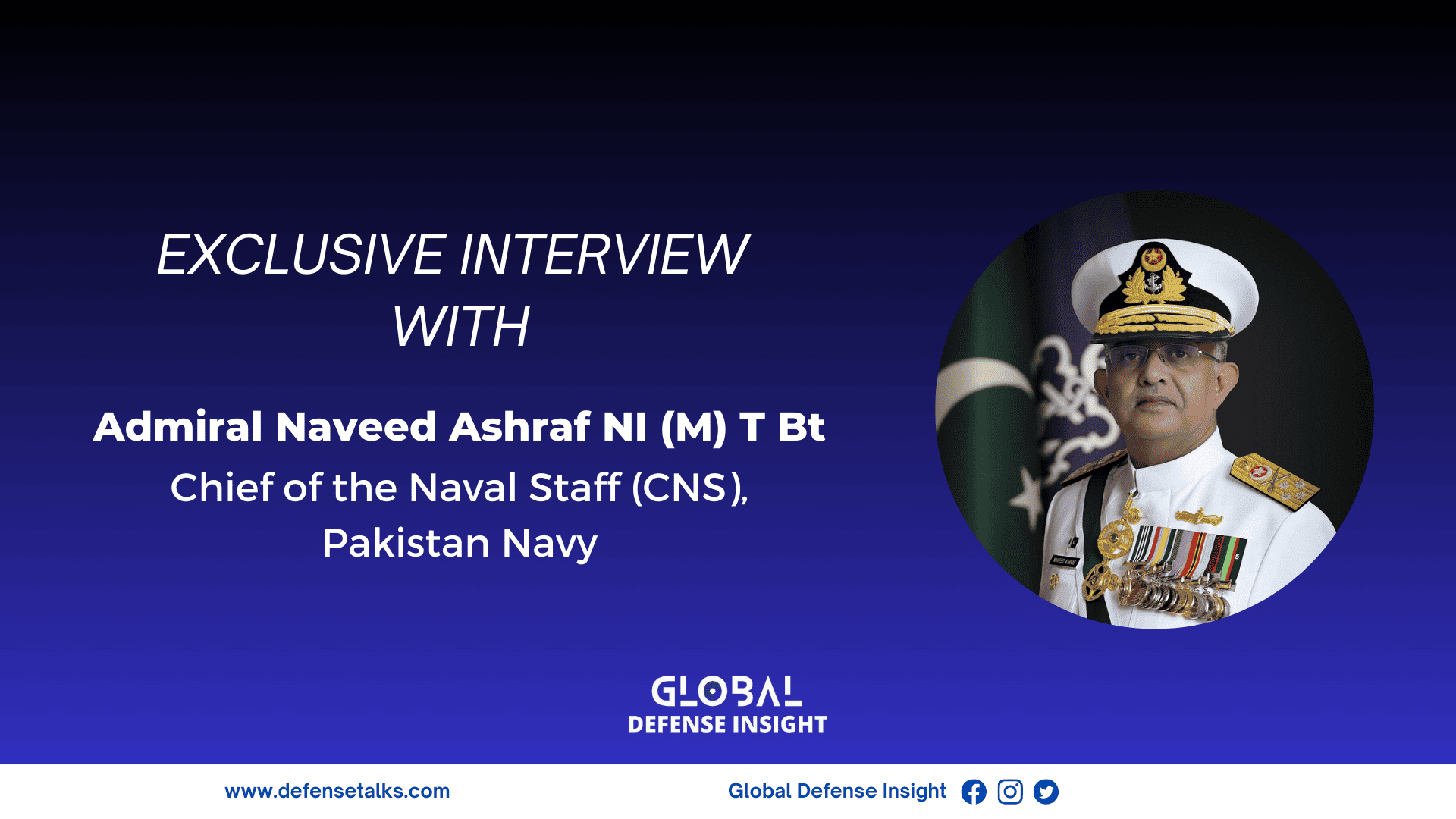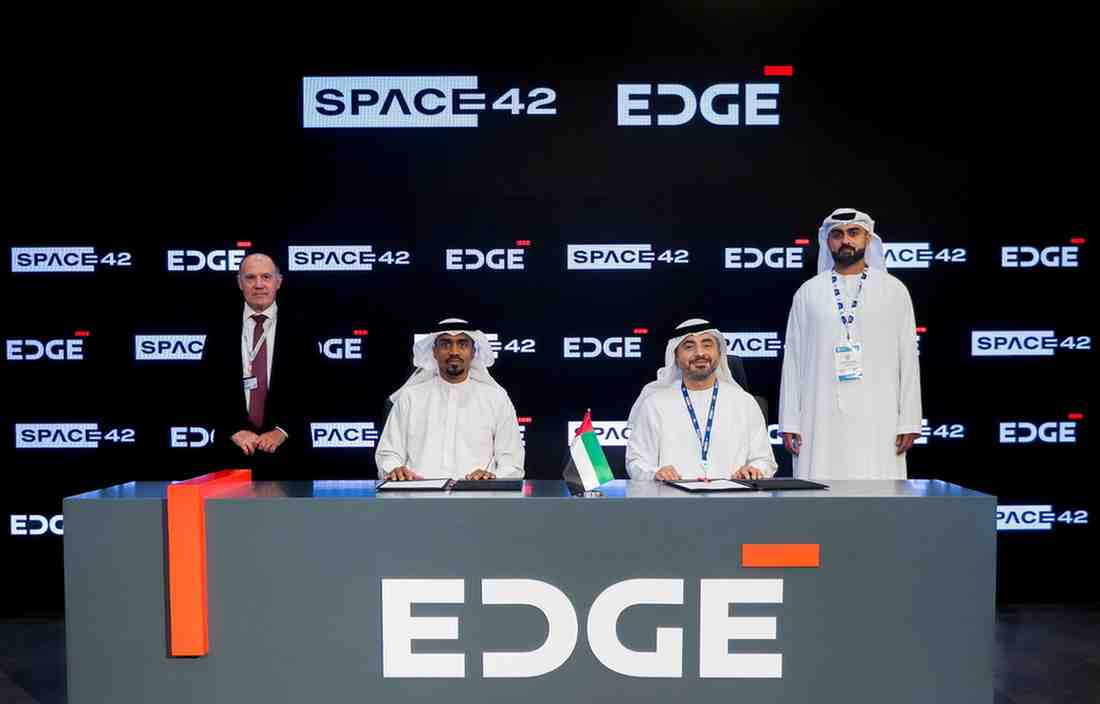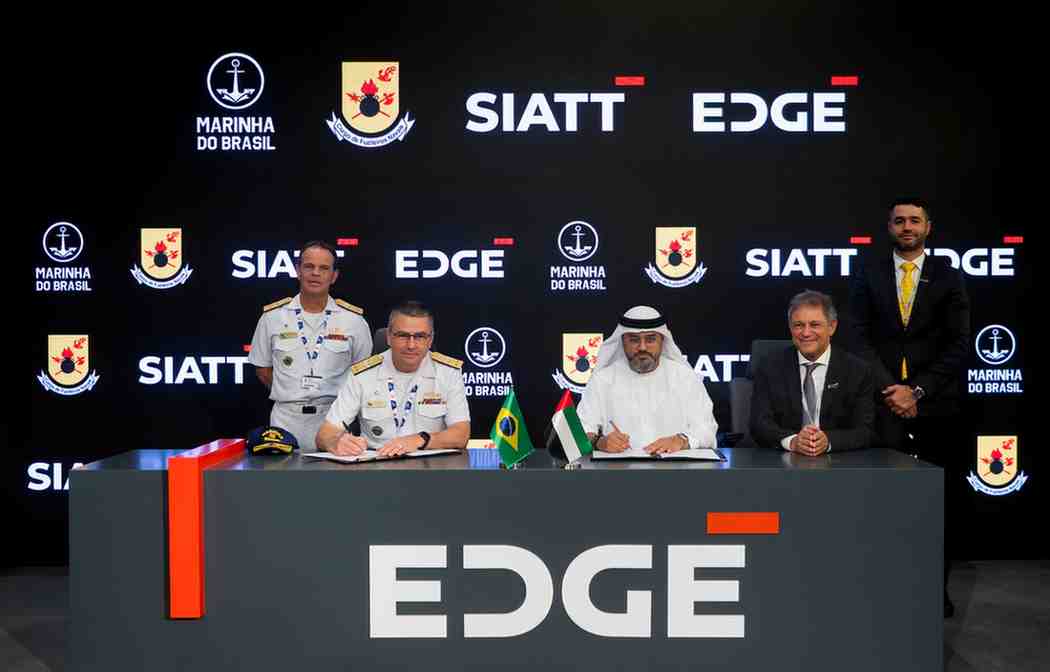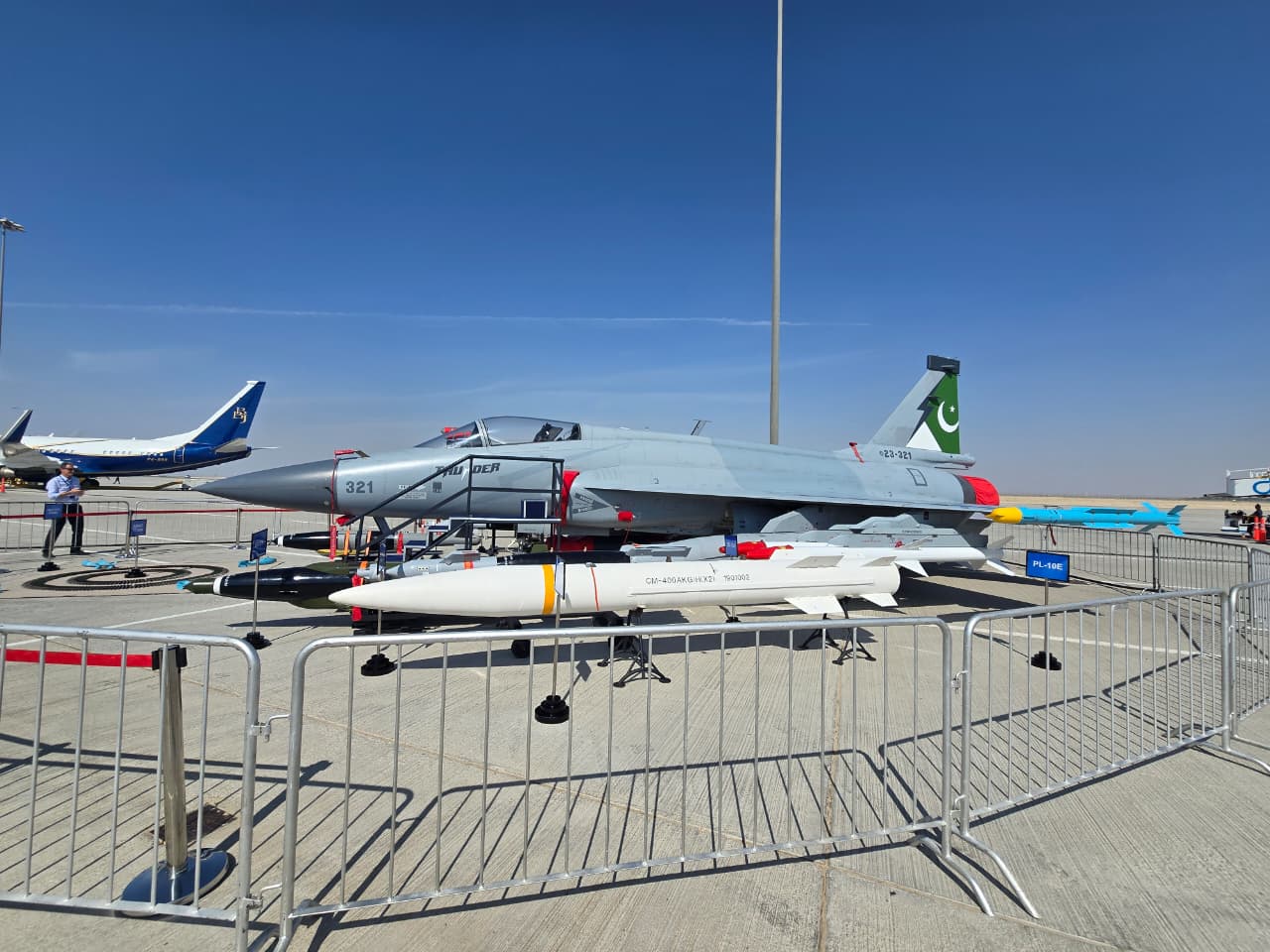The Pakistan Navy has consistently demonstrated its versatility by excelling in multilateral maritime operations, humanitarian assistance, disaster relief missions, and safeguarding critical sea lines of communication. To ensure perpetual combat readiness and deter any aggression against Pakistan, the Navy has focused on capability enhancement through the acquisition of advanced vessels, and aircraft, and the integration of emerging technologies. In an exclusive interview with Global Defense Insight, the 23rd Chief of the Naval Staff, Admiral Naveed Ashraf, shed light on the Navy’s modernization plans, collaborative initiatives with Pakistan’s defense industry, and the roadmap for future endeavors. Admiral Ashraf expressed full confidence in the Pakistan Navy’s high state of operational preparedness to meet all challenges and protect the nation’s maritime frontiers.
Q-1: With rising great power competition in Asia-Pacific, what’s the role of Pakistan Navy in ensuring stability and security in Indian Ocean Region?
Chief of the Naval Staff (CNS): The geopolitical environment of our region is changing rapidly especially due to ongoing Israel-Gaza conflict with its butterfly effect in Yemen and Iran. Already volatile maritime security environment coupled with diverse range of traditional and non-traditional maritime threats necessitates a robust, adaptive and technologically advanced Navy with well-trained human resource. The most pressing challenge is to continue boosting combat readiness through optimal utilization of resources and completion of ongoing projects under financial constraints in order to enhance Pakistan Navy’s prowess in increasingly complex maritime security environment in the region.
I am eager to prepare Pakistan Navy to counter both conventional and non-conventional threats being posed to us. In addition, I would like to see our navy performing 24/7 while ensuring security and stability in the North Arabian Sea. I am committed to strengthening Pakistan’s role as a key maritime player, capable of contributing to regional stability while protecting our sea lines of communication and economic interests.
Q-2: How is the Pakistan Navy adapting in terms of new capabilities and technological advancements?
Chief of the Naval Staff (CNS): Indigenization and modernization of Pakistan Navy is an important cardinal of my vision. Our development strategy is based on ‘progressive capability enhancement’ so as to create a balanced, potent and combat ready force to deal with the evolving threats through acquisition of force multipliers, indigenous and innovative technical solutions.
We have been focusing on induction of modern platforms, force multipliers, indigenization and maintaining diversified options to mitigate external dependencies. At the same time, we believe in making best use of available resources. Recently, we have inducted Type 054 A/P Frigates from China, OPVs Batch-l and Batch-II from Romania and MILGEM Class Corvette from Türkiye. These platforms with latest weapons and sensors will be a significant addition to PN existing capabilities to effectively deal with today’s complex muiti-inreat environment. PN is in process of inducting remaining MILGEM class ships as 2 of these ships are being constructed indigenously at Pakistan (KS&EW).
Based on experience gained during construction MILGEM Class Ships, Pakistan Navy is planning to build JINNAH Class Frigates (JCF) which will be our first ever indigenously designed and built frigate-sized warship.
Q-3: Naval diplomacy is an important aspect of PN’s engagements. Could you explain PN’s objectives in these initiatives?
Chief of the Naval Chief (CNS): PN, through naval diplomacy, contributes to the nation’s foreign policy objectives by showing Pakistan’s flag in countries far and wide; through Key Leadership Engagements; Navy to Navy Expert Level Staff Talks (ELSTS); Overseas Deployments (OSDs), participation in bilateral/ multilateral maritime exercises, Humanitarian Assistance & Disaster Relief missions and undertaking Non-Combatant Evacuation Operations of stranded affectees from conflict zones.
In this regard, we have formally established Navy to Navy ELSTS mechanism with 23 Navies across the globe to pursue bilateral collaboration in a structured manner covering operational, training and technical cooperation aspects. PN Ships also regularly undertake port calls to Far East, Africa, Arabian Gulf, Mediterranean and Europe.
Q-4: Can you please briefly introduce Exercise AMAN and AMAN Dialogue? What is the purpose and objectives of this exercise?
Chief of the Naval Staff (CNS): Main objective of AMAN is to foster regional cooperation for maintenance of good order at sea, improving interoperability, share experiences, understand each other and exhibit united resolve against terrorism and organized crimes in the maritime domain. PN is fully prepared and geared up to conduct AMAN-25 with enhanced participation of friendly countries in a professional and befitting manner. I may mention that previous edition of the exercise held in Feb 23, witnessed the participation from 50 countries across the globe. Keeping the same spirit, we are hopeful that this edition will also mark a distinctive chapter in history of AMAN exercises with enhanced participation of friendly countries. Moreover, we are also looking forwardfor a healthy participation of Chiefs of Navies/ Coast Guards/ Defence Forces during AMAN Dialogue.
Q-5: Pakistan has been a key contributor to Combined Maritime Forces (CMF) and has also established its own Regional Maritime Security Patrols (RMSP). Can you highlight PN’s stance on collaborative maritime security?
Chief of the Naval Staff (CNS): Pakistan Navy has long and successful tradition in cooperating with international partners. We believe that the magnitude and diversity of threats and challenges in our region is such that no country has the wherewithal to tackle them alone. Therefore, Collaborative maritime security has become an imperative for ensuring maritime security in the region. Our key principle is to keep the maritime environment safe against non-traditional threats and effectively contribute towards safety and security of vital sea lanes in the Arabian Sea, to our best abilities despite being a moderate Navy.
There is no second opinion on the fact that intensifying naval cooperation with other navies will help ensure maritime security in the Arabian Sea and adjacent regions. PN contributions in CTF-150, CTF- 151, conduct of Regional Maritime Security Patrols (RMSPs) and regular participation in bi/ tri-lateral events, Ex AMAN, AMAN Dialogue, all point in the same direction.
Q-6: As Pakistan undertakes major national development initiatives like CPEC, what specific roles does the Pakistan Navy play in security these projects, especially regarding protection against threats to maritime trade routes and infrastructure?
Chief of the Naval Staff (CNS): China Pakistan Economic Corridor (CPEC), a Flagship Project of BRI, would contribute significantly towards economic prosperity for all the stakeholders. CPEC is a manifestation of strong and fortifying ties between China and Pakistan that will play a key in the economic uplift and betterment of the entire region. PN is taking all possible measures to ensure protection of Gwadar Port and its seaward approaches through sustained presence in and around the adjoining waters off Gwadar. In addition, coastal areas and particularly Gwadar Port and its approaches are regularly monitored to snub illicit activities through effective functioning of Coastal Security & Harbour Defence Force (CS&HDF) and Task Force-88, raised to provide seaward security to CPEC, Gwadar port and its approaches.
Q-7: India’s naval modernization efforts, including the expansion of its surface and submarine fleets, have implications for regional stability. How does PN view its deterrence posture and combat readiness in this context, and what steps are being taken to ensure a credible response?
Chief of the Naval Staff (CNS): Pakistan Navy is a balanced force, which is capable to respond to full spectrum of conflicts and is optimized to evolving character of warfare, rehearsed to perform in time sensitive situations and remains combat ready. Manned by competent HR, integrated through NCW and with a right balance between manned and unmanned assets, our fleet is capable to deal with diverse maritime challenges. While India continues to portray itself as a net security provider in the Indian ocean, however, we will continue to maintain our presence in the ocean. We are not in an arms race with India, however, we maintain adequate capacity to accomplish assigned tasks effectively.
- Global Defense Insighthttps://defensetalks.com/author/umair/
- Global Defense Insighthttps://defensetalks.com/author/umair/
- Global Defense Insighthttps://defensetalks.com/author/umair/
- Global Defense Insighthttps://defensetalks.com/author/umair/












